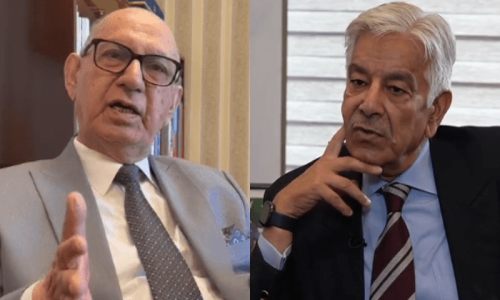ROME, June 6: A UN summit pledged to cut trade barriers and help poor farmers on Thursday night to fight hunger threatening 1 billion people, but poverty campaigners said this was not enough to cap high world food prices.
The three-day Rome summit of 183 countries narrowly avoided embarrassing failure when Latin Americans protested at criticism of export curbs in the final declaration, which committed to “eliminating hunger and to securing food for all, today and tomorrow”.
The UN Food and Agriculture Organisation called the summit to discuss the impact of poor harvests, high fuel costs and rising demand, especially from fast-growing Asian countries, and there was a row over biofuels.
“We firmly resolve to use all means to alleviate the suffering caused by the current crisis, to stimulate food production and to increase investment in agriculture, to address obstacles to food access and to use the planet’s resources...,” the declaration said.
The Rome debate on the potential benefit to poor farmers of new global trade rules will feed into a push to conclude the Doha round of World Trade Organisation talks.
But trade was a sticking point, with food exporter Argentina objecting to criticism in the declaration of export curbs like those it had imposed to shield consumers from food inflation.
US Agriculture Secretary Ed Schafer said countries should understand that such restrictions cause food price inflation.
Asian rice stockpiling is blamed for high rice prices that have even led to riots.
“We understand that countries want to protect their food supply and make sure that there’s enough food for their own citizens but when there’s a lock-out from the marketplace ... prices actually go up,” Shafer told reporters in Rome.
Delegates said Rome had succeeded at the very least in putting soaring food prices at the top of the global agenda.
Schafer said it had rallied support for “expanded food production ... trade liberalisation and recognises the important role of investments in science and technology in ensuring food security in the long term”.
Cuba and allies Venezuela and Argentina objected to the declaration which Cuban delegate Orlando Requeijo Gual said “neglects the vital needs of those who suffer from hunger”.
He hit out at the “sinister strategies of using grain for fuel”, a reference to biofuels, which critics say divert crops from food to cars.
The United States and Brazil defended using maize and sugar cane respectively to make ethanol to fuel cars, saying it is a minor factor in food price inflation. The declaration referred to both the “challenges and opportunities” of biofuels.—Reuters















































Dear visitor, the comments section is undergoing an overhaul and will return soon.